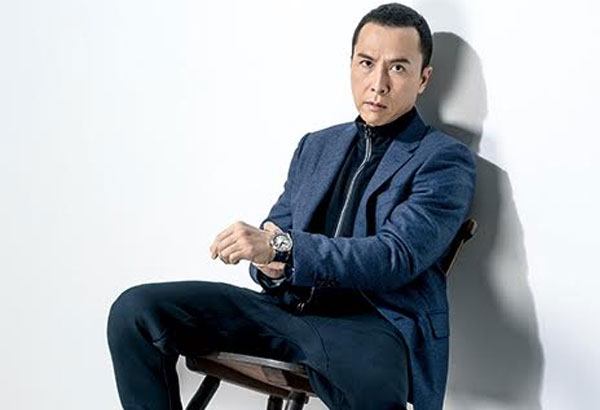
Donnie Yen
From the author: I tried to write the most complete Biography of Donnie Yen, collecting together all the information that I was able to find on the Internet. Most of it was taken from the official website www.donnieyen.com and translated, the rest from auxiliary sources and from my many years of observations.
HOME
Two roads diverged in a yellow forest,
And I - I will choose only one to follow,
And that's the whole difference.
- Robert Frost, "The Road Not Taken"
The poet Robert Frost wrote it, but Donnie Yen would have said it. A rebel at heart, he chose his own path. The road ahead has not always been smooth. Direct and honest in his judgments, he was more likely to make things worse for himself than for others. His many moves as a child not only shaped him into who he is today, but also influenced the vision of the films he made. For Ian, these tapes are personal.
"When you watch my films, you feel my heart," - he says.
Born in the Canton region of China, Yen moved to Hong Kong at the age of two. He lived there until he was eleven, then moved with his family to Boston, Massachusetts. where Donnie spent his most significant years in later life, beginning to study wushu and tai chi at his mother's school, Bow Sim-Mark, which owned the then most famous martial arts school, the Chinese Wushu Research Institute. His father worked as an editor for the international Chinese daily Sing Tao, in Boston, and also played the violin and Chinese string instruments. while his mother sang soprano.
Young Ian's sensitivity to rhythm ultimately influenced his films, adding structure and depth.
"Music and movement are both expressions of the same basic human energy. They are like paints used to color a screen."
KUNG FU
Donnie Yen's mother began training her son in martial arts almost as soon as he could walk. With her, he mastered traditional and modern Chinese wushu and tai chi, understanding internal and external principles. Ian, like most young teenagers hanging out in Boston's Chinatown, never missed a kung fu movie in the theaters. Watching the stars of that time (70s) Fu Sheng, Ti Lung, Bruce Lee and Jackie Chan, who was just starting out at that time, on the screen, Yen, leaving the cinema, accurately repeated their movements on the screen. He often skipped school to once again go to the movies. Hunggry for a deeper study of martial arts and a rebel by nature, Ian began searching and mastering. Regardless of the fact that his friends practiced a certain type of martial arts, he begins to study other styles and their directions. Feeling the strength and power in martial arts, he was in search of the Truth of martial arts.
FROM STREET TO SCREEN
By the beginning of the 80s, he became cramped in Boston, being in self-improvement, he began to participate in illegal fights without rules in the suburbs of Boston called the Combat Zone. There, Ian meets representatives of the Triad, who decide to take patronage over a capable fighter. Donny begins a completely different life: nightclubs, girls and gang warfare. It is unknown how it would have ended if the mother had not sent her son to Beijing “out of harm’s way.”
In China, Yen trained for two years with the renowned Beijing Wushu team, whose teacher was a master who trained Jet Li himself. Yen was the first "non-Chinese" to be accepted into the school, opening the door for future followers. Although the training was intense and disciplined, Ian wanted more, so his time at the school became only temporary. Soon he decides to return to America, but the path lay through Hong Kong, where, quite by chance, he ends up at the casting of Yuen Woo Ping’s new film “Drunken tai-chi” (1984).
Previously, it was Wu Ping who launched the career of Jackie Chan in the films Snake In The Eagles Shadow (1978) and Drunkin Master (1978), and was currently in search of a new “hero” . By happy circumstances, Wu Ping turns out to be an old acquaintance of Donnie’s mother, and condescendingly allows Ian to take part in the casting. For two minutes, the film crew, with their mouths open, watches the young man’s impromptu sparring. Recovering, Woo Ping immediately offers Donnie the lead role. Ian agrees rather “for fun” - he never thought that he would become an actor.
MASTER OF EVERYTHING
Inspired by his idol, Bruce Lee, Yen not only explored a wide variety of different fighting styles, he also created his own unique system of martial arts. Combining several styles, he conveyed them to his hero on the screen. Starting as early as "Drunken Tai Chi", his enormous physical abilities were obvious. In the Tiger Cage series (1988), Ian showed his versatility with Western kickboxing. Iron Monkey (1993) showcased the traditional style of kung fu, and Yen's unforgettable performance, the film became one of the most influential martial arts films of the decade. Here he became famous for demonstrating Hungg Gar style kung fu. Ironically, Ian said he didn't study it.
But despite the filming, throughout his film career Ian did not stop his training outside of filming, and always developed himself by studying martial arts.
"I've been involved with martial arts for so many years, I don't focus on a particular style. Basically I agree with what Bruce Lee said, that as humans we all have two arms and two legs, so don't There really can be many different styles of fighting. Each style of martial arts has something to offer."
BREAKTHROUGH
Yuen Wu Ping recognized Yen's extraordinary physical abilities; their series of films together led to a new direction in Hong Kong action cinema. While waiting to begin filming Donnie's first film, Drunken Tai Chi, Woo Ping cast Yen as a stunt double for Eddie Ko, Simon Yuen and himself in Miracle Fighters 2 (2).
Yen made his debut at the age of 19 in one of the last traditional martial arts films, Drunken Tai Chi, which culminates in a surprising final fight. Donnie didn't really like working with Yuen Wu Ping. “He never explained anything to me or the other actors.” - Ian recalls. — “We just walked up to the camera, and Yuen said, hit him so that he bends over, then again. And that’s it. But when he didn’t like something, he jumped up from his director’s chair and started yelling godlessly. At such moments, I I wanted to kill him."
But this film marked the beginning of a successful creative duet. Over a five-year period, Wu Ping and Yen made films that became real “masterpieces of the genre” - the Tiger Cage series, In the Line of Duty 4 (4), and Drunken Tai Chi.
In Cage of the Tiger, Ian invited talented martial artists from Boston and his friends Michael Woods and Stefan Berwick, and the fight choreography included taekwondo, Western boxing, and traditional Chinese martial arts. And another friend, John Salviatti, was invited to the film "On Execution 4", the staging of the fights was innovative, well-staged realistic fights that showed the strengths of all the warring parties. In Tiger Cage II (2), Yen creates his own, very modern style of fight choreography based on his ongoing and widespread research into various fighting arts, and many believe that the realistic fights in this film are slightly perhaps the best in the history of action cinema.
THE DRAGON
By the end of the 80s, Donnie Yen begins to gradually move away from Woo-Ping: at first he works with him simply as a fight director, and then completely stops working with the director. It all started when Tsui Hark, director of Once Upon a Time in China 1-2 (1, 2), was looking for the main opponent for Jet Li in the second part of the film, choosing Yen. Although the official director of the fights was Yuen Wu Ping, the two fights in which Donnie participated, he choreographed himself. This role becomes iconic, Donny’s participation in the film makes him a real star in Hong Kong, and he was nominated for an award for “Best Supporting Actor”. All the films that followed Once Upon a Time in China 1991,1992 were very sharply different from what Donny had done before - from the "modern" urban ballets of "Cage of the Tiger" and "On Line 2", he moves on to large-format staged historical murals that demand something completely different fighting style - not as straightforward and dynamic as in the above-mentioned films, but more staged and ornate - this is where all his skills in classical Chinese kungfu came in handy. If we take his films in particular, then, for example, the scene in Iron Monkey, where Yen performs the famous “shadowless kick” in the fight scene with the Shaolin monks, has been recognized by critics and audiences as one of the most influential martial arts scenes decades. His versatility, so evident in the Cage of the Tiger series, easily carried over into the period of martial arts cinema, demonstrating once again that he is the "master of all genres"
ARTISTIC SIGNIFICANCE
However, Ian wasn't content with just being on screen and his journey took a different turn. He maintains that Wu Ping "discovered" him, but also admits that he learned from many other directors. Always quick to research and observe the filming process, curiosity, intuition and artistic sense served him well as he began to develop his own aesthetic and style and put it on the big screen - from action choreography, camera placement, to composition and editing.
INNOVATION
After the new wave of traditional kung fu films ended, Yen headed towards Hong Kong television, trying to get into that field as well. He is credited with two series that would go on to become hits: The Kung Fu Master (1994) and Fist of Fury (1995). The first of them, where Donnie served as the main actor and fight director, told about the life and adventures of the hero of the Chinese epic Hungg Hei-Kwan, and the second was a loose remake of the classic film of the same name by Bruce Lee. Cheng Zheng, previously played by Jackie Chan in the sequel directed by the original Fist of Fury director Lo Wei, and Jet Li in Fist of Legend directed by Corey Yuen. Now it's Ian's turn! Donny literally cherished this 30-episode brainchild of his, which became the favorite of all fans of martial arts, despite the television format. He not only experimented with different styles, but helped with filming, editing, soundtracks and special effects. Romance, intrigue and drama became the key elements of Ian's storytelling. And this is Ian, not Jackie Chan or Jet Li. This was an Asian challenge for Chen Zheng's audience. Having played the main role there, Ian automatically caused a flurry of comparisons with Bruce, mostly positive ones - he worked hard to adopt the style of the “king of the screen”.
THE DIFFICULT PATH
Despite Ian's exceptional martial arts talent, he chose a difficult path that led to his directorial debut with Legend Of The Wolf (1997). Despite the fact that the film collected a small box office, the film was warmly received by critics and reviewers, instantly becoming a cult favorite in a narrow but loyal circle of fans. Literally immediately after "The Legend of the Wolf", Donnie took on a slightly different genre - "an opera of pistols and whistling bullets", called "Ballistic Kiss" (1998). Both films were made for literally pennies (500 thousand Hong Kong dollars), but Yen managed to squeeze everything he could out of this meager budget, making them visually beautiful and internally filled. “Ballistic Kiss” was sent to the Tokyo Film Festival, where Donny was nominated as best debut director, while reaching the finals, where out of 50 films only six remained, and Yen was the only person from Hong Kong.
After this film, he received an offer from Hollywood from the Chrome Dragon company, which was a subsidiary of Francis Ford Coppola. But after a while everything came to naught due to the fact that producer Tom Luddy left the company.
Almost immediately after this, an offer comes from Steven Seagal himself. But the producers could not entrust the newcomer with a project for 40 million bucks. Donnie himself, sharing his opinion, said that Seagal is one of the best fighters in Hollywood and respects him as a person.
THE DRAGON FLIGHTS OUT
In 1999, he was invited to Germany to serve as a fight director for the television series Codename: Puma (1999-2000), which received excellent ratings on the day it was shown. The series went into production.
Donnie was also noticed in Hollywood - Dimension Films (a division of Miramax) signed a contract with him for three films. The first film was “Highlander: Endgame” (4), Ian played a small but effective role and choreographed the fights. The leading roles in this film are played by Christopher Lambert and Adrian Paul, Donnie Yen plays the role of their friend, one of the immortals, and according to him, he has to play both action and drama.
In 2001, The Iron Monkey, which had already become a classic in Hong Kong, was released in American cinemas, bringing his earlier work to a new audience. Next comes the film "Blade 2" (Blade2: Bloodhunt) (2001) with Wesley Snipes, where Ian plays a small role, but also works on staging fights. Director Zhang Yimou decides to reunite the duo of Donnie Yen and Jet Li in the historical film “Hero” (2002), with a then-record budget for China of $30 million. In this film, Ian plays a noble killer. The next film is the role of a villain in Shanghai Knight (2003), where Ian faces Jackie Chan himself.
"Ip Man" (2008), released in 2008, brought Donnie Yen enormous popularity not only in China, but also far beyond its borders. The second "Ip Man 2" (2) only consolidated it, collecting an impressive box office.
MILLENNIUM
Donnie Yen has the skills and experience to bridge the boundaries between Hollywood, East and West. He is fluent in English, Cantonese and Chinese. Born in Hong Kong, he grew up in Boston throughout his childhood, moving back to Hong Kong as a teenager where he took his first steps, and now he lives again in the States. His films reflect his personal personality. Cinema for Ian is a flow, a flow of images, a flow of music, and a flow of communication between art and audience. He brings a new style of world cinema for a millennium to come.
Now no one will doubt that Donnie Yen is recognized as one of the “pillars” of Hong Kong action cinema, he is put on a par with Jackie Chan and Jet Li and he deserves such authority.
PERSONAL LIFE
Date of birth: July 27, 1963 (age 47)
Place of birth: Guangzhou, China
Profession: Actor, film director, producer, screenwriter, fight choreographer
Career: 1982 - present time
Donnie Yen is married to Chinese actress Wang Ku-Ku. They married in 2003 in Toronto. In 2009, Wang won the "Most Beautiful Chinese Woman Living in Toronto" competition. They have a son and daughter.
FILMOGRAPHY
Films
- Chung Wah Sin San (2013)
- Monkey King (2013)
- Soi Yat Hei (2013)
- Dut Shu Sun Fun (2013)
- Baat seng bou hei (2012)
- Wu xia (2011)
- Ji keung hei si (2011)
- The Lost Bladesman (2011)
- The Legeng Of Chen Zhen (2010)
- Ip Man II (2010)
- 14 Blades (2010)
- Bodyguards and Assassins (2009)
- The Founding Of Republic (2009)
- All's Well End's Well 2009 (2009)
- Ip Man (2008)
- Painted Skin (2008)
- An Empress and The Warriors (2008)
- Flash Point (2007)
- Dragon tiger gate (2006)
- StormBreaker (2006)
- Seven Swords (2005)
- SPL (2004)
- Love on the rocks (2004)
- The Twins Effect sequel (2004)
- Protégé de la Rose Noire (2004)
- Oni-musha III (PS II Game) (2003)
- Twins Effect (2003)
- Shanghai Knight (2003)
- Hero (2002)
- Shurayuki-Hime (2001)
- Blade2: Bloodhunt (2001)
- Highlander: Endgame (2000)
- Moonlight Express (1999)
- City of Darkness (1998)
- Ballistic Kiss (1998)
- Shanghai Affairs (1998)
- The Black Rose (1997)
- Legend Of The Wolf (1997)
- Iron Monkey 2 (1996)
- Satan Returns (1996)
- Asian Cop - High Voltage (1995)
- Saint of Gamblers (1995)
- Circus Kids (1994)
- Wing Chun (1994)
- Iron Monkey (1993)
- Hero Among Heroes (1993)
- Butterfly and Sword (1993)
- Cheetah on Fire (1993)
- New Dragon Gate Inn (1991)
- Once Upon a Time in China 2 (1992)
- Crystal Hungt (1991)
- Holy Virgin vs. Evil Dead (1991)
- Tiger Cage II (1990)
- In the Line of Duty 4 (1989)
- Tiger Cage (1988)
- Mismatched Couples (1985)
- Drunken Tai Chi (1984)
- Miracle Fighters 2 (1982)
Dramas/serials
- Code name: The Puma (2000)
- Code name: The Puma (1999)
- Fist of Fury (1995)
- The Kung Fu Master (1994)
- Crime File (1991)
- A New Life (1991)
- Flying Tiger SWAT Team (1989)
- Mo Min Kap Sin Fung (1988)
- The Last Conflict (1987)
Other
- Cinema of Vengeance (1994)
Author: Lindolion
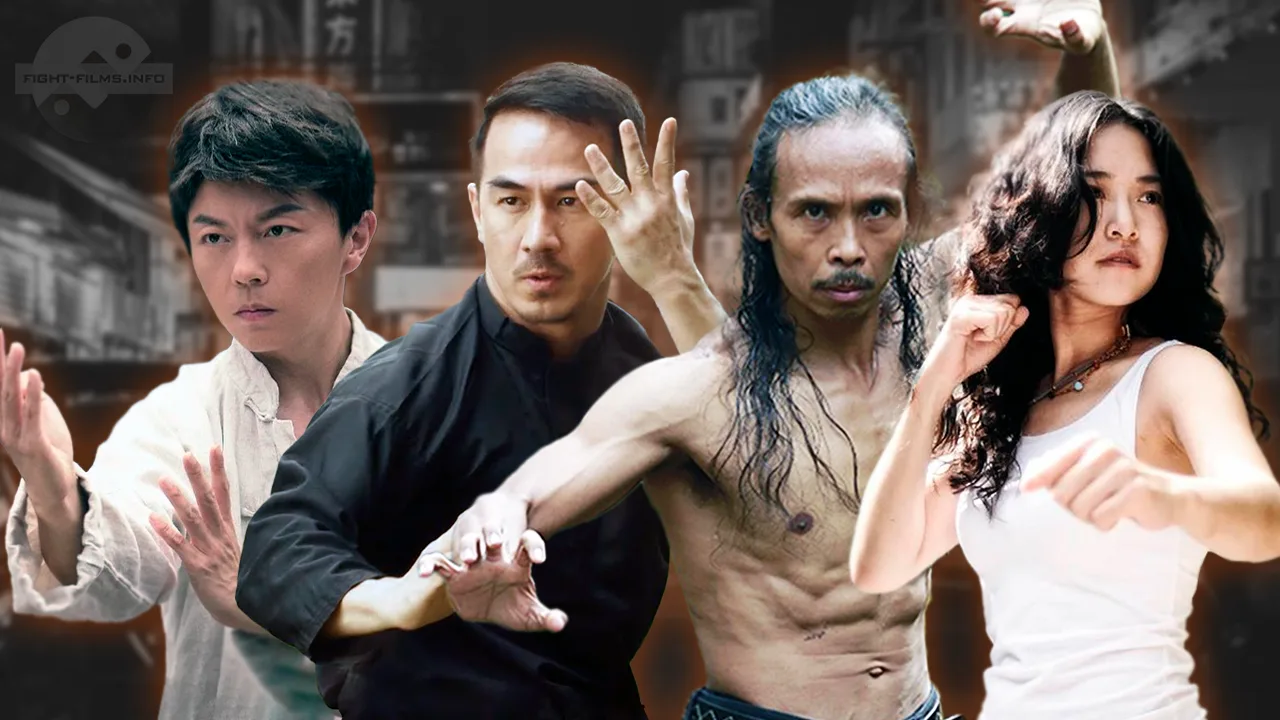
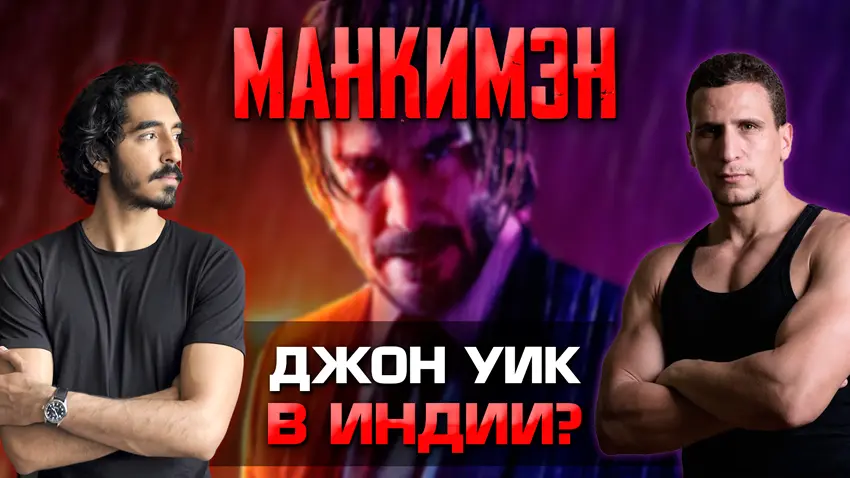
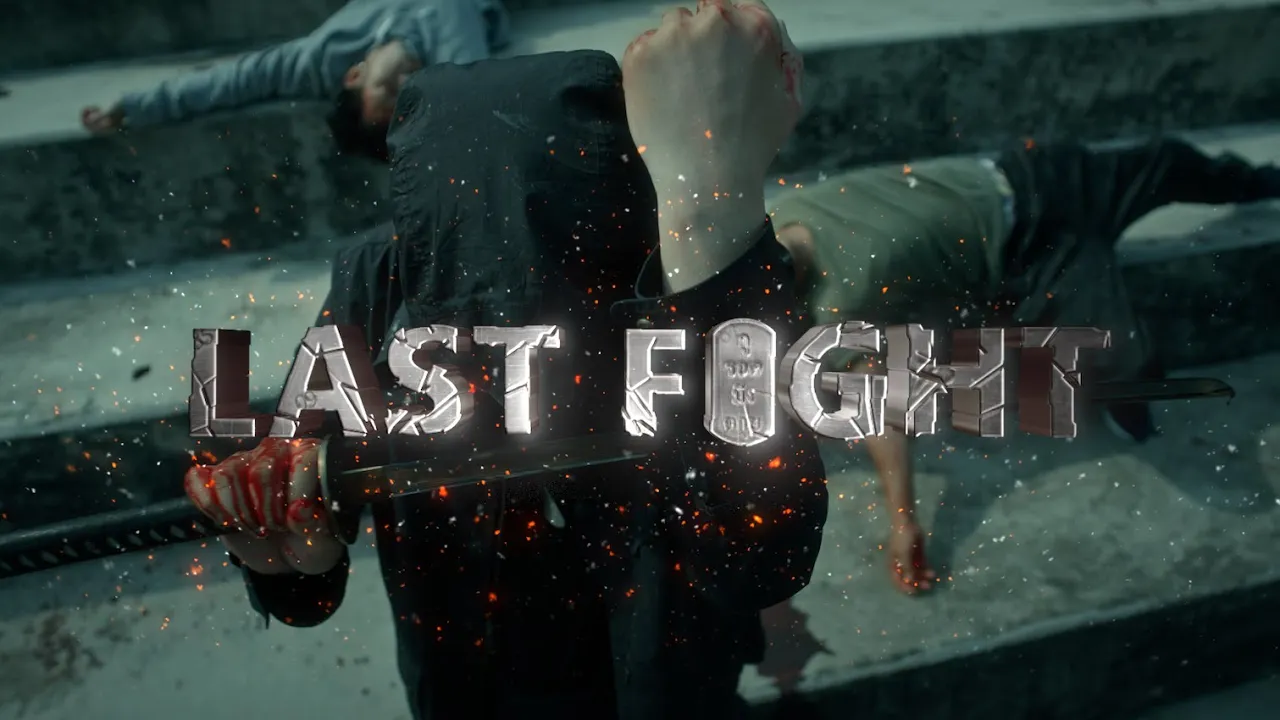
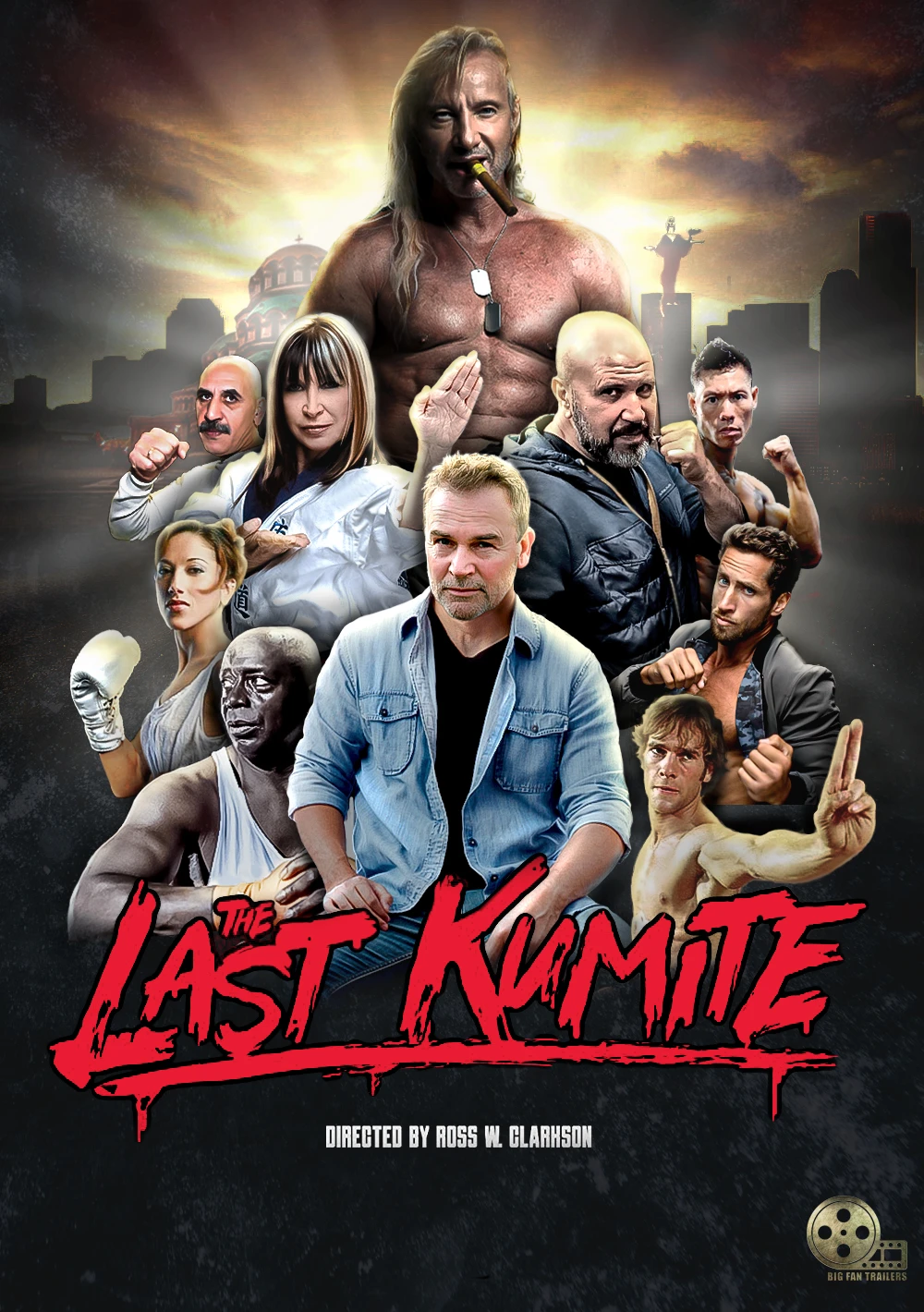
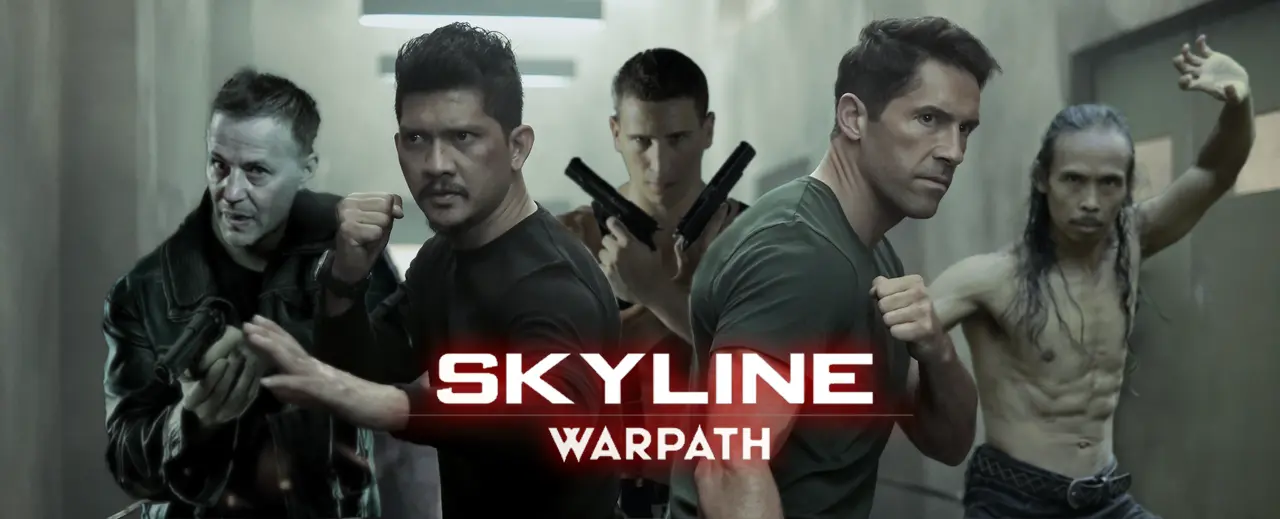
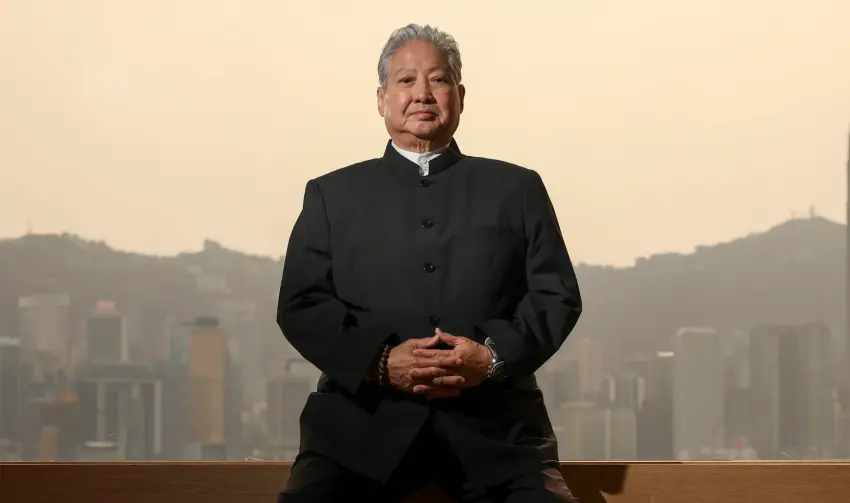
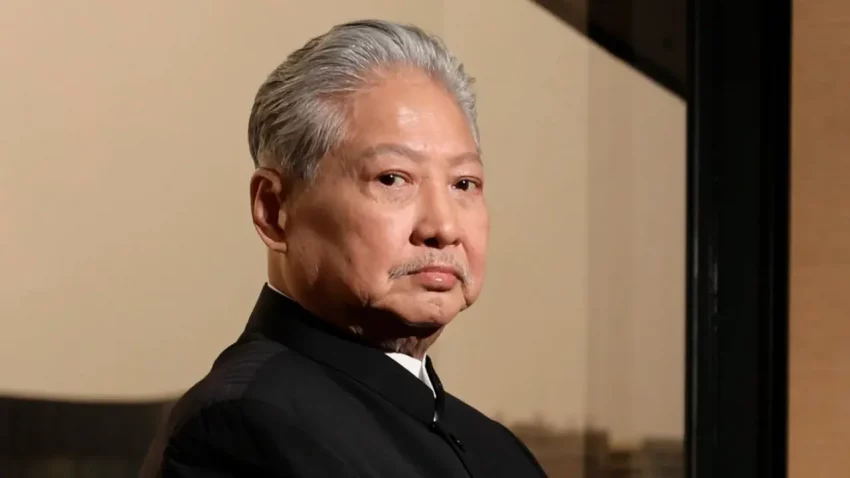

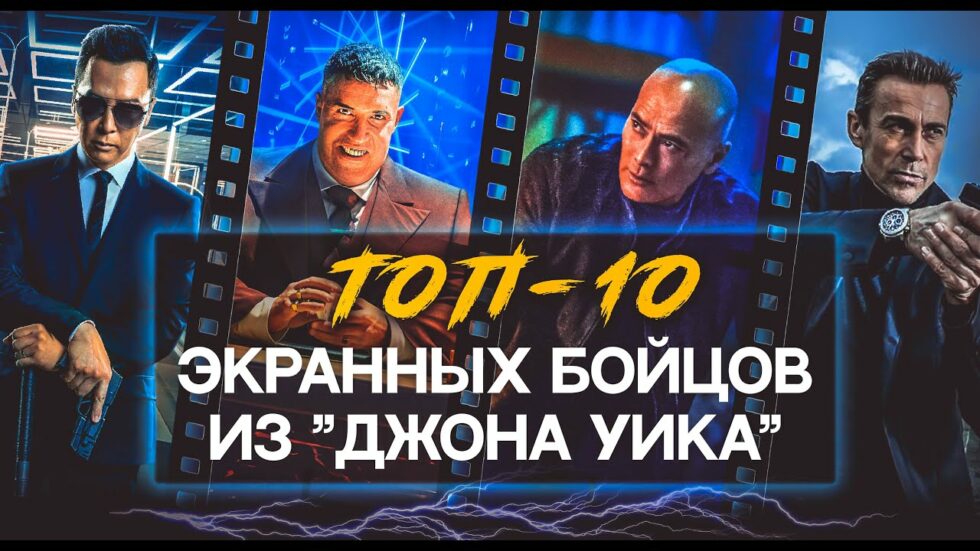
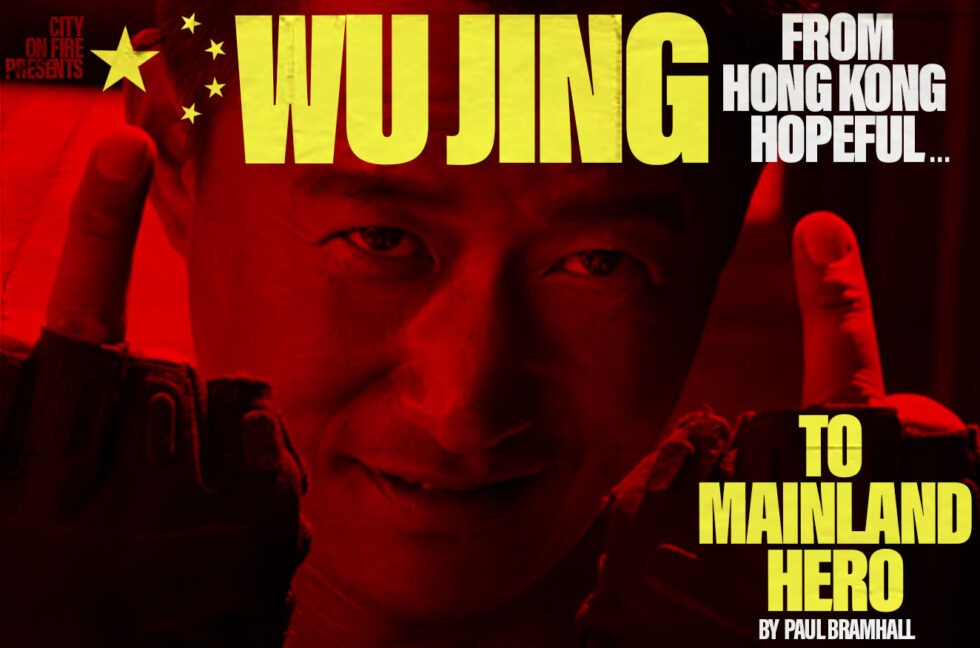
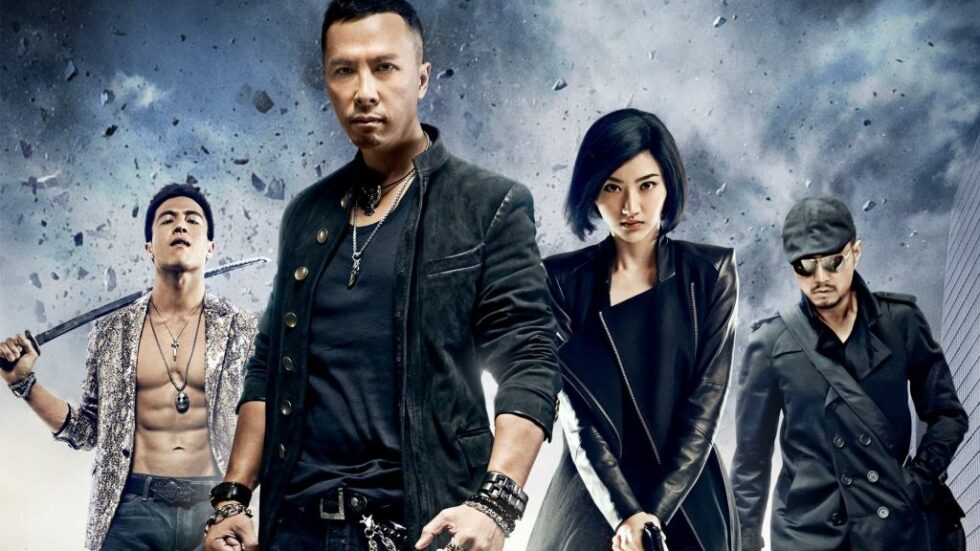
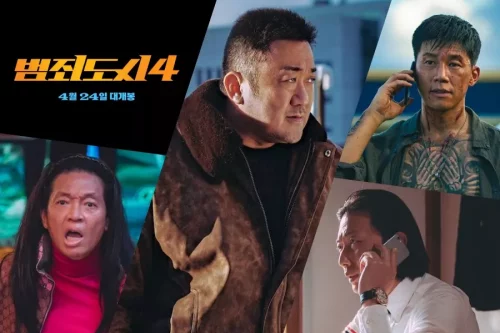
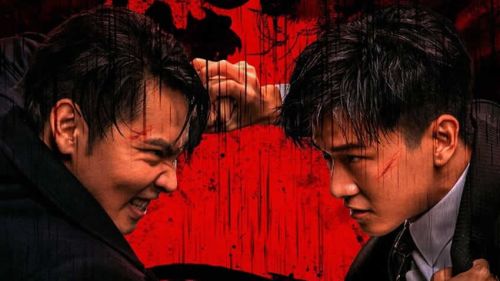
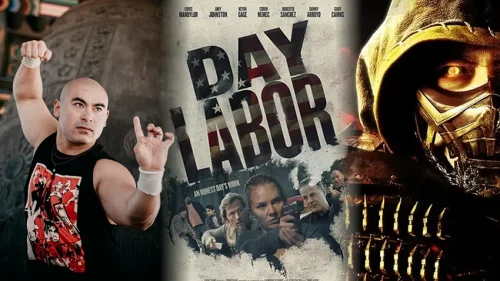
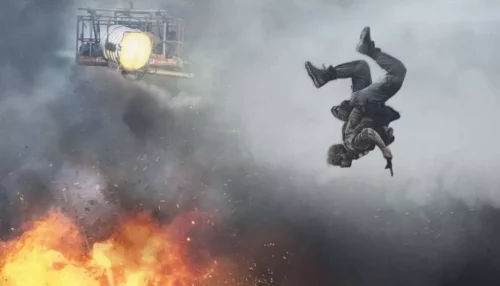
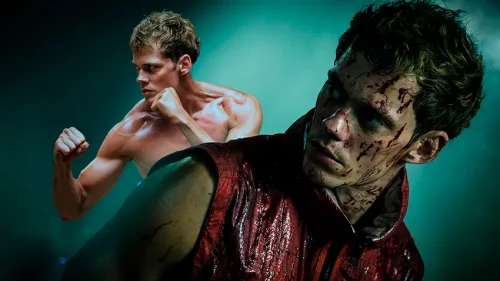
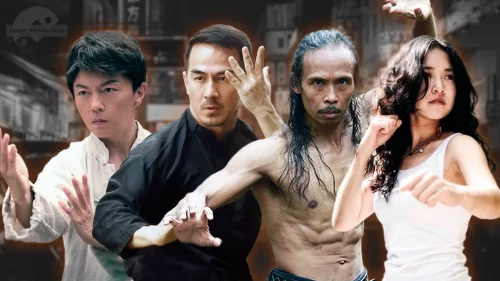

I am waiting. I hope there will be something exciting.
I would like to mention Pasha as a person who has been an active participant in this project since…
Sad ending, albeit with a joke...
Added a video from the filming of "Twilight of the Warriors".